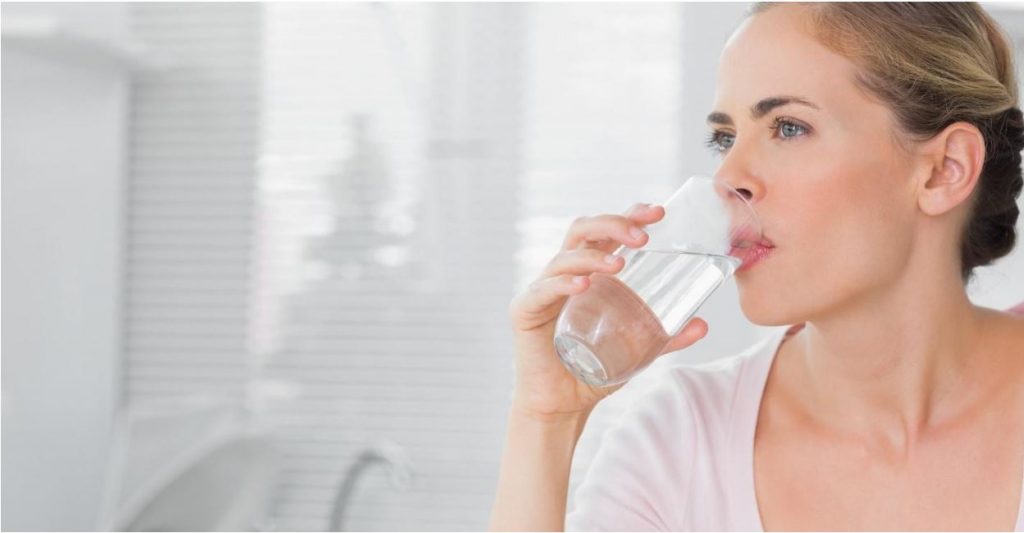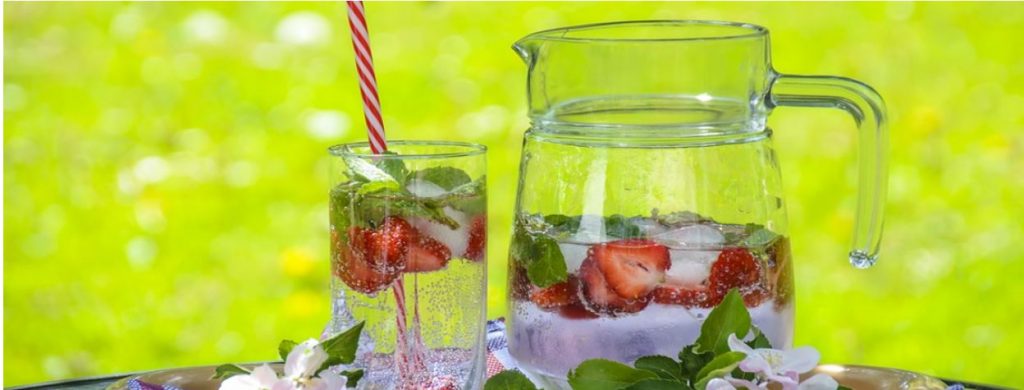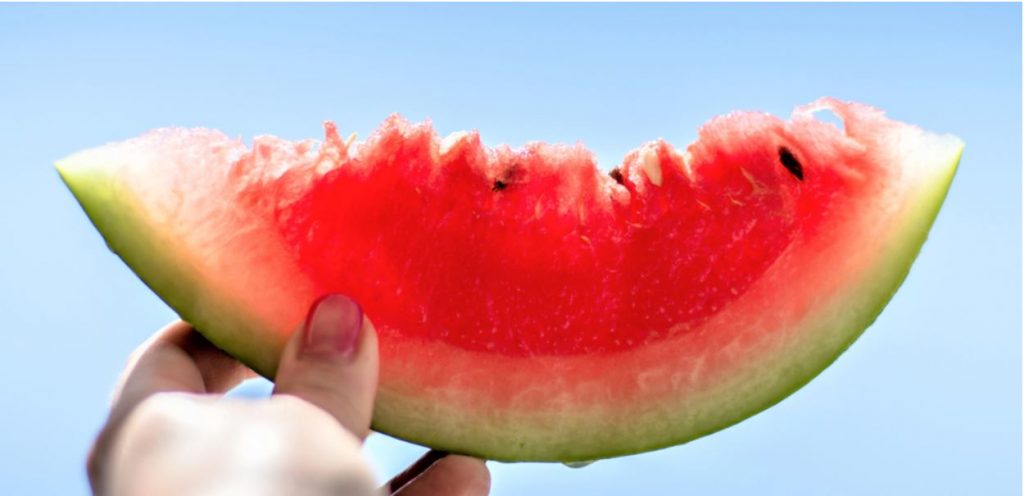Tips to Hydrate for Health and Fertility

The summer months and the hot weather can easily cause mild to severe dehydration, which can be dangerous.
Staying hydrated every day is an important part of a healthy lifestyle.
Drinking pure water is essential for hydration and should be a part of your daily routine. Especially in the hot summer months, when we tend to lose more water from our bodies though sweating and evaporation—as our body works to stay cool. Of course that’s not to say you don’t have to be aware of hydration in winter when its easy to forget to drink enough.
Water is the largest single component of the body, our most critical nutrient and needs to be our beverage of choice.
Overall, our bodies comprise around 50 – 70 % water.
Some parts, for example our brain, can be up to 85% water.
Staying hydrated is incredibly important as water/fluids play an essential role in
- Metabolism – providing the medium through which all metabolic and biochemical reactions occur
- Cell membrane function
- Regulating our body temperature e.g. sweating
- Aiding in digestion to breakdown foods and saliva production (also containing digestive enzymes)
- Maintenance of blood volume (85% water) and blood pressure
- Delivery of oxygen throughout your entire working body
- Transporting nutrients from our foods (especially water-soluble vitamins) throughout your body
- Lubricating joints, and as a protective cushion e.g. spinal fluid
- Flushing unwanted toxins from the body – mostly via urine and bowel movements. Proper elimination will prevent constipation.
- Production of nerve and brain cells, creating hormones and neurotransmitters – Even mild dehydration can cause mood alterations, headaches, irritability and poor concentration.
- Keeping our mucosal membranes moist e.g. lung, digestive & reproductive tissues
- Keeping all our cells rejuvenated, reproducing, and surviving
- Supporting your fertility by stimulating circulation to reproductive tissues, improving egg and sperm health, healthy cervical fluid (which helps sperm find the egg), improves semen viscosity https://www.ncbi.nlm.nih.gov/pubmed/9288332
What are Your Fluid Requirements?
On average, adults require around 30ml of fluid per kilogram of body weight per day.
Of course, this will vary with age, climate and activity levels.
How Can You Tell If You Are Getting Enough Fluid?
One of the easiest ways to test your hydration is through bathroom frequency and urine color. Your urine should be very light yellow. If your urine is any darker than this, it is likely that you are already dehydrated. And you should be emptying your bladder at least 5 times per day.
Some other signs of insufficient hydration that you need to look out for include
- Thirst – by the time you are feeling thirsty, likely you are already mildly dehydrated
- Hunger – whenever you feel hungry, reach for water first to see if it solves the problem. Often thirst might be mistaken for hunger
- Constipation
- Low blood pressure
- Fatigue
- Headache
- Poor mood
- Poor concentration
- Unexplained infertility
Now that you know why staying hydrated is so important to your health, let’s look at how to achieve this in a way that’s sustainable.

Easy Ways to Stay Well Hydrated
First of all, ensure that you have access to pure, clean water. Invest in a good quality water filter, preferably one that can filter out chemicals such as chlorine and fluoride (compromise thyroid function) that are often added to urban water supplies.
- As soon as you wake up, make it a point to drink some water or a warm herbal tea to rehydrate after the night’s sleep.
- Invest in a reusable water bottle made from glass or stainless-steel rather than plastic (most plastics contain BPA and harm your health as well as the environment).
- Keep a cup or bottle of water in plain sight on the kitchen bench, work desk or a place that is always easily accessible to help you track your water intake each day. If you’re mindful of keeping the bottle nearby, you’ll be much more likely to sip throughout the day.
- Have bottles of water ready to take with you on outings.
- Keep a jug of filtered water in the fridge for hot weather.
- Infuse your water with a little flavor. If you don’t like the taste of plain water, add slices of lemon, orange or lime, a few berries and/or a few mint leaves to a jug or glass of filtered water. This makes it more interesting and the addition of the citrus assists in hydration. “Infused Water” is quite trendy at the moment.
- Add some bubbles. Try sparkling mineral water or soda water to make your drink more enticing. Invest in a Soda Stream.
- Freeze small pieces of fruit or mint leaves in ice blocks and add these to cups and jugs of water to make them a little more special.
- Drink before you eat. Sometimes our brains confuse thirst with hunger, so next time, before reaching for a sugar laden snack in the mid to late afternoon, drink some water before eating and your hunger ‘pangs’ just might disappear.
- Make a water/hydrating schedule or routine. It is of little use to guzzle your entire day’s water in one or two massive drinks. Use the space between meals as ‘hydration times’. Mid-morning, mid-afternoon and after dinner are ideal times for hydrating ‘pick-me-ups’. Make it part of your daily routine. Routines and rituals like this help us to maintain healthy habits.
- Set ‘hydrating reminder’ alarms on your phone or computer to let you know its time for a few sips.
- Sip on herbal teas through the day. These are lovely warm for wintery days but can also be delicious as a cold drink on hot days.
Did You Know There Is Another Way to Help Your Body Stay Hydrated?
Why not EAT your water!
Only 70-80% of your daily hydration actually needs to come from water.
Around 20-30% should come from food!
All whole fruits and vegetables contain 80-90% water so include high water content foods into your meals and snacks.

Some of the highest include
- Cucumbers – 97% water
- Celery – 96% water
- Lettuce – 96%
- Tomatoes – 95% water
- Capsicums / bell peppers – 93% water
- Cauliflower – 92% water
- Spinach – 91% water
- Broccoli – 91% water
- Watermelon – 92% water
- Strawberries – 91% water
Watermelon is a great example at 92 percent water with 8 percent natural sugar, plus essential electrolytes, calcium, magnesium, potassium and sodium, rich in Vitamin C, beta carotene and lycopene.
Blend watermelon, pineapple, mango, kiwi, blueberries, strawberries, mandarin or orange (in fact any fruit) and freeze into popsicles or slushies on super hot days.
Go for coconut water – a mineral-rich liquid from the inside of young, green coconuts. It is packed with potassium, magnesium, sodium, and calcium that replenish lost fluids and electrolytes from exercise and hot summer temperatures. Also try freezing coconut water ice cubes or popsicles for a refreshing, hydrating summer treat.
Try a green smoothie with coconut water, chia seeds, a banana, and a hand full of leafy greens.
A leafy green salad will contain plenty of water. Include spinach, kale, celery, capsicum/bell peppers, tomato, strawberries, blueberries. Enjoy!
Clear, broth-based soups made with vegetables offer an ideal way to get liquid into a diet along with good nutrients during winter months. We must keep in mind that indoor heating can also be very dehydrating.
Remember to drink (and eat) your water!
Do you have any hints and tips on how you keep your family hydrated?
